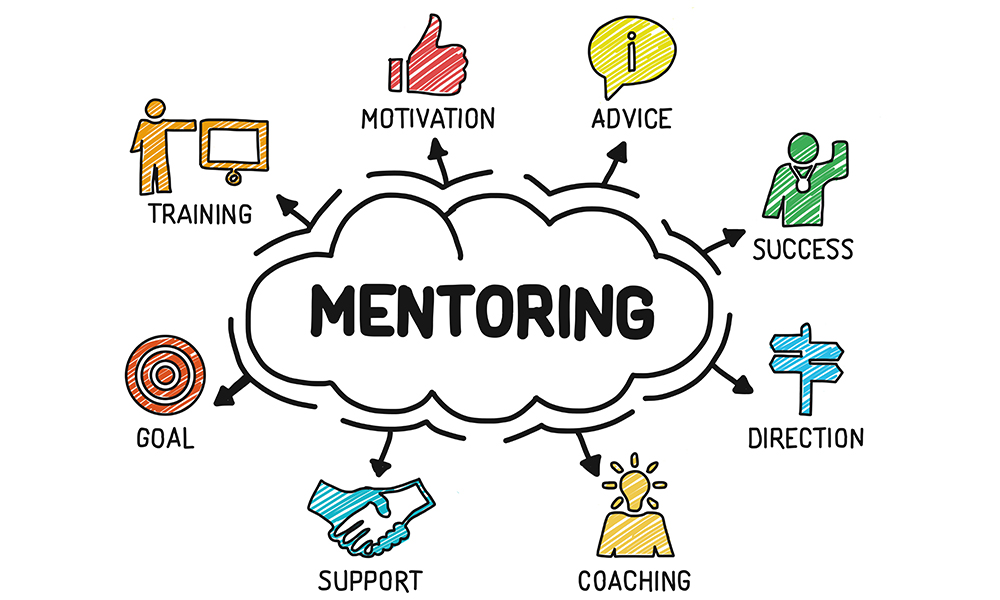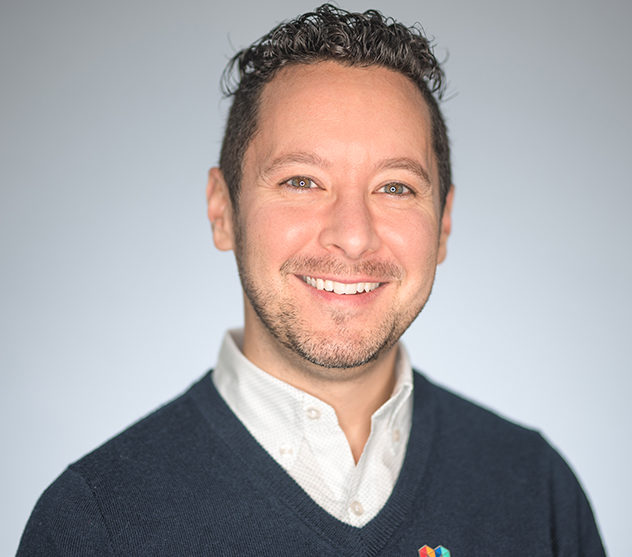
MENTOR
.
As Oprah says, “A mentor is someone that allows you to see the hope inside yourself. A mentor is someone that allows you to know that no matter how dark the night, in the morning joy will come. A mentor is someone who allows you to see the highest part of yourself when sometimes it becomes hidden to your own view.”
For nearly 5 million youth between the ages of 16 and 24 who are not in school or employed, mentoring relationships are critical to helping them increase access, leverage opportunities and build the confidence and skills to pursue their education, career and life goals. At MENTOR: The National Mentoring Partnership, we have been committed to increasing the quantity and quality of mentoring relationships for youth for the past 26 years alongside our affiliates and more than 1,800 mentoring program partners across the country.

Dan Horgan
We believe that all youth should have access to caring adults that: 1) promote the pursuit of the youth’s passions, skills and interests; 2) enable youth’s access to and exploration of spaces where these can be pursued; and 3) help youth overcome personal and/or institutional obstacles. Our vision is underpinned by the approach MENTOR uses to help adults and youth form relationships, which is grounded in positive youth development and youth-centrism.
As MENTOR continues to expand our support of opportunity youth with partners such as the Schultz Family Foundation, America’s Promise Alliance, Starbucks and LinkedIn, we have found the following lessons to be important guiding principles in expanding mentoring relationships and maximizing our collective impact with youth.
- Focus on collaborating, not directing.
Mentors should practice curiosity and focus on asking great questions of youth while actively listening to get to know them, to understand their goals and to help youth discover and leverage their strengths. Mentors should seek to understand young people’s unique experiences, culture and perspectives rather than directing the young person to achieve what the mentor deems appropriate or important as goals. Mentors should not focus on “fixing” youth, but rather, they should be champions for youth.
As mentoring programs and philanthropic partners unite to support opportunity youth, it is important to acknowledge and fully leverage the expertise and experiences of each partner in the collaboration. It is equally important to engage and collaborate with opportunity youth in the design, implementation and evaluation of programs aiming to support them.
- Share experiences and perspectives.
Instead of telling others what to do, mentors should share with youth their life experiences and alternative perspectives to consider. By brainstorming options with youth, we empower them to reflect on the pros and cons of each option using creative and critical thinking skills — ultimately making decisions for themselves. Mentors should be fully present in the discussion and open to exploring and discovering with youth. Mentors should be mindful of how they are balancing talking and listening.
As mentoring programs advance innovative practices with opportunity youth, it is important to share lessons learned and elevate the perspectives of stakeholders engaged. This helps accelerate the adoption of effective practices and keeps the field grounded in the unique goals of partners working toward a shared vision. At MENTOR, we facilitate this through our IMPACT and Collaborative Mentoring Webinar Series as well as our National Mentoring Summit.
- Challenge growth leveraging past successes.
Some people focus on reasons why they are not good at something and why they don’t feel as though they can achieve a goal or belong at work or school. Mentors can challenge young people’s growth by having them reflect on past successes and consider using past success strategies to overcome current challenges. This helps young people develop a growth mindset and strengthen their resiliency. It also reminds youth that there are multiple pathways to success.
With support from the Raikes Foundation, MENTOR partnered with Stanford University’s Project for Education Research that Scales (PERTS) Lab and City Year to develop a Growth Mindset Toolkit for Mentors. The resource helps mentors guide youth in cultivating perseverance, self-reflection and positive decision-making.
- Be transparent about failures, successes, needs and wants.
Mentors should discuss with youth some of their successes, including what it took to achieve them and what they learned in the process. Mentors should also reflect with youth on their failures, modeling for young people how we can leverage our failures as learning opportunities and how these past challenges can positively influence our thoughts and actions today. Mentors can encourage transparency in mentoring relationships by discussing with youth specifically what each wants and needs, setting clear expectations and boundaries while aligning actions with youth-identified goals.
Through the National Mentoring Resource Center, which is supported by the Office of Juvenile Justice and Delinquency Prevention, MENTOR elevates the latest and best research and resources to improve the quality and effectiveness of mentoring programs. This research, which helps clarify what is and is not working in the mentoring field, influences the practices we promote, the policies we advocate for and the investments we make in mentoring.
It is imperative that we collaborate in connecting with opportunity youth and expand authentic, high-quality relationship supports that remind youth of their unique strengths and potential. As Venus Williams says, “I don’t focus on what I’m up against. I focus on my goals and try to ignore the rest.”
We must remind opportunity youth the same: that they matter, that the challenges they have faced in life have prepared them to achieve the goals they set for themselves and that by leveraging mentors, they can increase their access and opportunity.
Daniel Horgan is the senior director of corporate engagement for MENTOR, where he builds and manages corporate partnerships that help close the youth mentoring gap in America while meeting business goals. He has 18-plus years of experience working in the business and nonprofit sectors and has extensive experience training, consulting and coaching in the areas of leadership, management, organizational development, youth development and public/private partnerships.



























